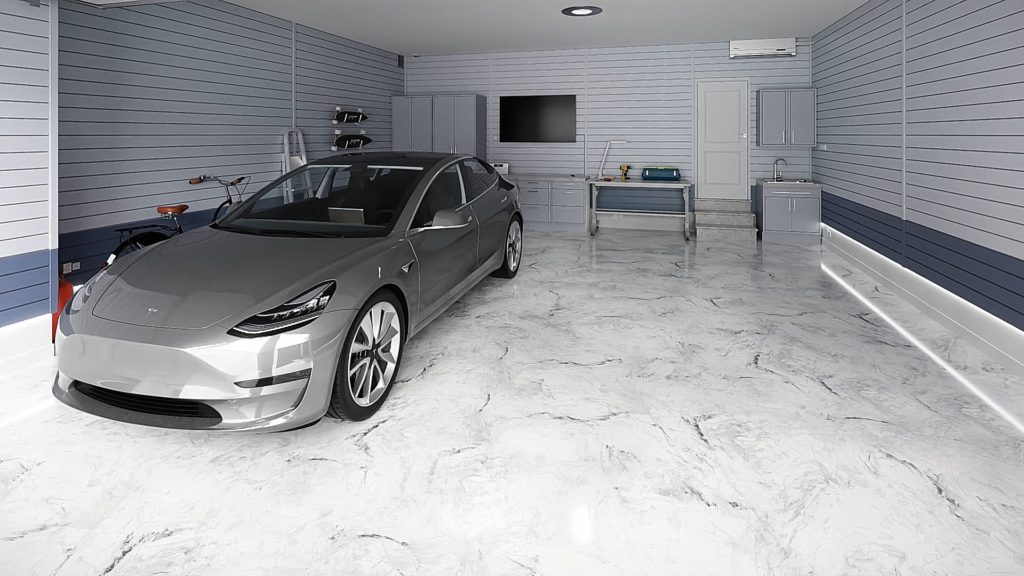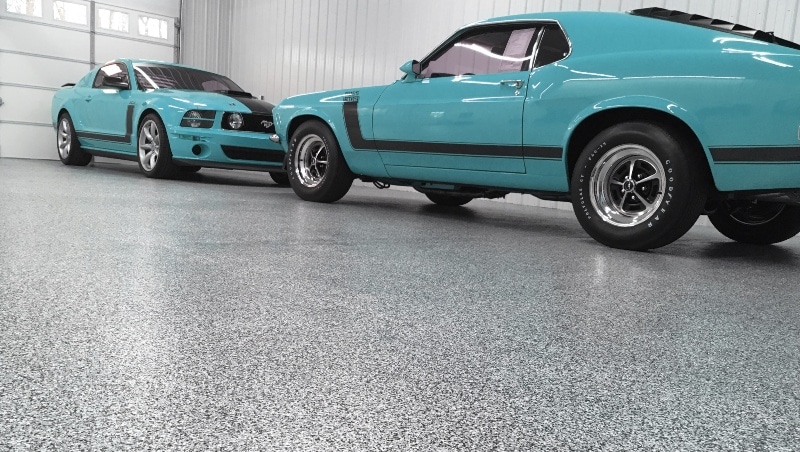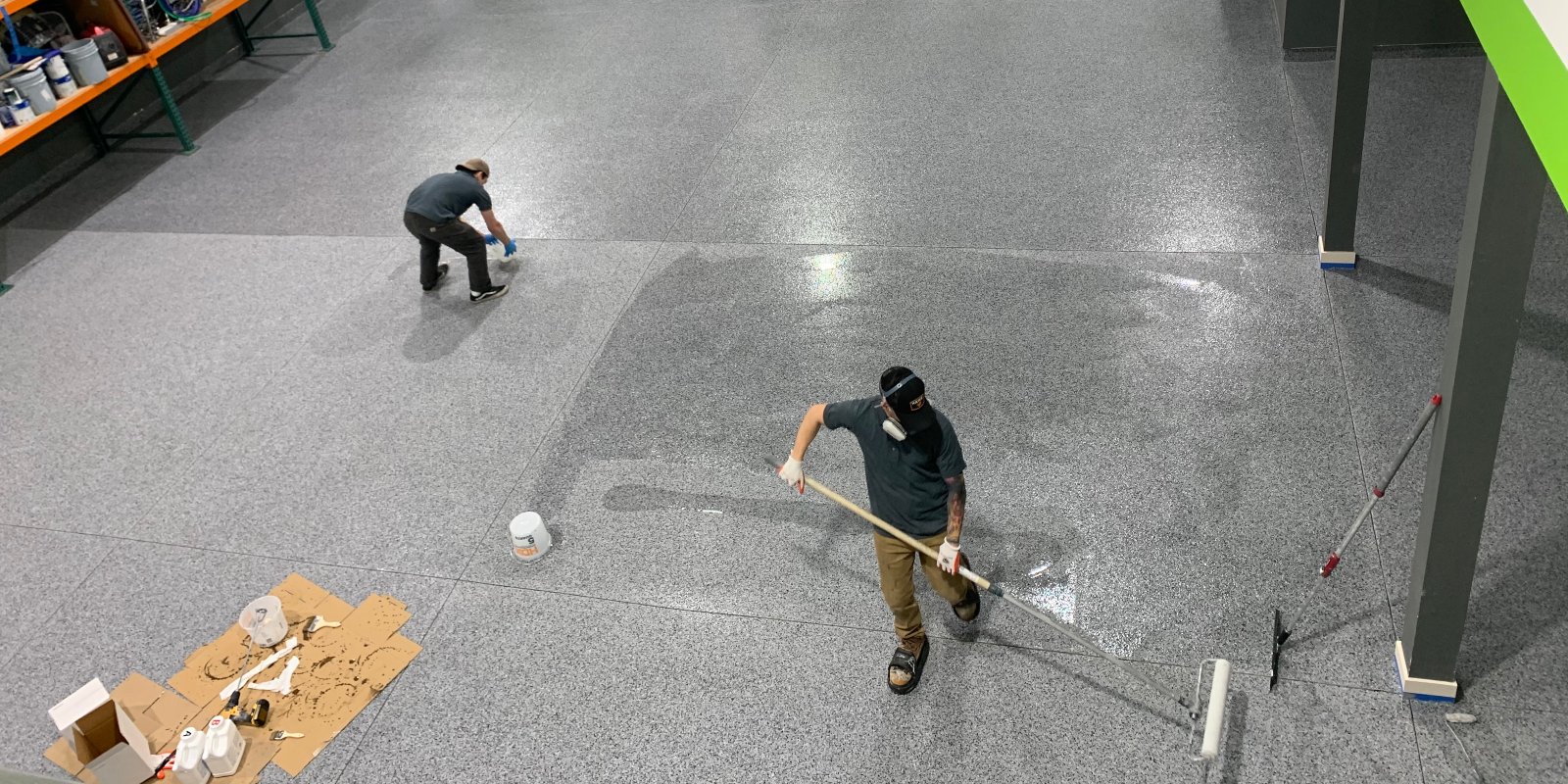The Ultimate Guide to Calculating Epoxy Coating Garage Floor Cost
Are you tired of your dull garage floor? Do you want to give it a fresh new look that will last for years to come? Look no further than epoxy coating! This durable and versatile flooring option is becoming increasingly popular among homeowners, thanks to its ability to transform any space into a sleek and modern area.
But before you rush into getting an epoxy coating for your garage floor, it’s important to understand the cost involved. Calculating epoxy coating garage floor cost can be overwhelming, but fear not! This ultimate guide will break down all the factors that affect the cost and help you determine a budget that works for you.
From materials and labor costs to different types of epoxy coatings and their benefits, we’ve got you covered. So let’s dive in and take the first step toward your dream garage floor! Keep reading to find out everything you need to know about calculating epoxy coating costs for your garage floor.
Understanding Epoxy Coating
Epoxy coating is a versatile protective layer used in industries like automotive, aerospace, and construction to shield surfaces from corrosion, wear, and chemicals. It consists of two main components – epoxy resin and hardener – that when combined, create a strong, rigid material adhering well to diverse surfaces.
One standout feature of epoxy coating is its durability, offering high resistance to impacts, abrasions, and chemicals, making it perfect for harsh environments. Its longevity and ability to withstand extreme temperatures make it a cost-effective choice, reducing the need for frequent repairs.
Epoxy coatings are renowned for their adaptability, suitable for concrete, metal, wood, and even plastic surfaces. This wide application range spans industrial and residential projects. The coatings are available in various colors, textures, and finishes, allowing easy customization based on aesthetic preferences. This versatility extends its usefulness beyond industrial settings to decorative applications like garage floors or countertops.
Epoxy coating’s combination of durability, resistance, and versatility makes it a go-to solution for protecting surfaces while offering opportunities for creative expression in both functional and decorative projects.
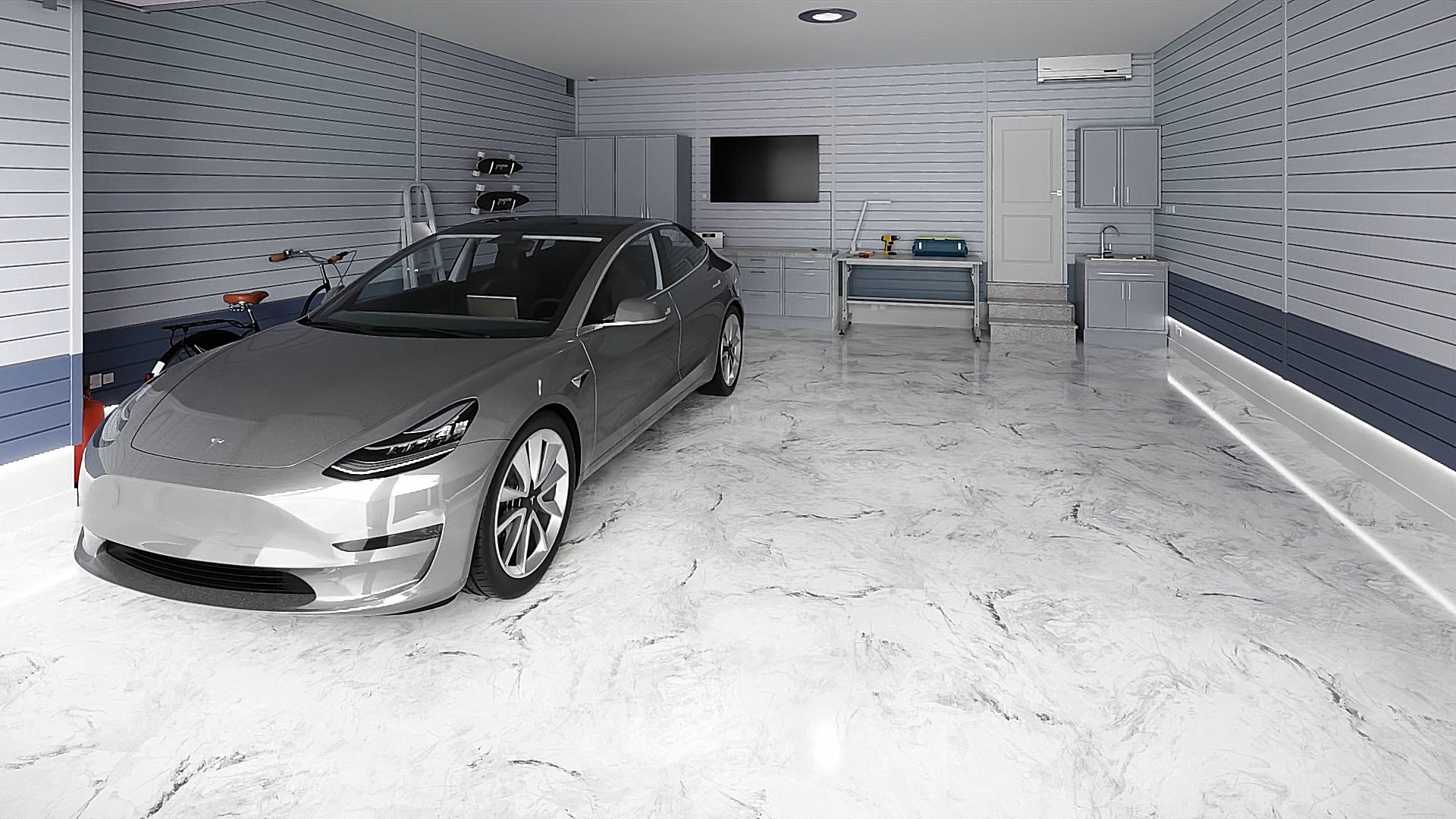
Types of Epoxy Coatings
Epoxy coatings come in various types, each with its unique characteristics and applications. Understanding these options can help you choose the best one for your project, balancing both needs and budget considerations. Let’s take a closer look at the different types of epoxy coatings available:
- Water-Based Epoxy: This type is a popular choice for residential projects. It boasts low VOC emissions, making it an environmentally friendly option. Its ease of application and quick drying time make it a favorite among DIY enthusiasts.
- Solvent-Based Epoxy: Ideal for industrial projects, this type offers high durability and chemical resistance. However, it emits high levels of VOCs, requiring proper ventilation during application to ensure safety.
- 100% Solids Epoxy: Known for its strength and durability, this type contains no solvents or water additives. It is commonly used in high-traffic areas like garages and commercial warehouses. While it comes at a higher cost, its longevity and resilience make it a worthwhile investment.
- Self-Leveling Epoxy: Perfect for creating seamless surfaces, this type is ideal for high-traffic spaces. It can also be used to repair uneven or damaged floors, providing a smooth finish that enhances aesthetics and functionality.
By delving into the nuances of each epoxy type, you empower yourself to make informed decisions that align with your project requirements. Whether you prioritize eco-friendliness, durability, or seamless finishes, there’s an epoxy coating tailored to meet your specific needs.
Factors Affecting Epoxy Coating Cost
Now that you understand the different types of epoxy coatings available, let’s take a look at the key factors that can influence the overall cost:
- Size of Area: The size of your garage floor is a crucial factor in determining epoxy coating cost. Larger areas require more materials and labor, increasing the overall cost.
- Type of Epoxy Coating: As mentioned earlier, different types of epoxy coatings come at varying costs. The type you choose will impact the overall cost, with 100% solids being the most expensive option.
- Surface Preparation: The condition and preparation of your garage floor before applying epoxy coating can also affect the cost. If there are cracks or repairs needed, it may add to the overall expenses.
- Labor Costs: Hiring professional contractors to install epoxy coating will add to the cost. However, DIY enthusiasts can save on labor costs by applying the coating themselves.
- Additional Features: Customization options like decorative flakes or metallic pigments can also increase the cost of epoxy coating.
It’s crucial to consider these factors while calculating epoxy coating costs for your garage floor, as they can significantly impact your budget and final results.
Calculating Epoxy Coating Cost
Delving into the realm of epoxy coating costs reveals a world of factors to consider. Let’s unravel the mystery and craft a comprehensive guide to estimating the expenses involved in transforming your garage floor.
Firstly, measure the square footage of your garage floor. This fundamental step sets the foundation for your cost calculation journey. Next, evaluate the condition of your floor – are repairs or preparations needed? This assessment ensures a smooth transition to the coating process.
Now, the exciting part – choosing the perfect epoxy coating type! Dive into the world of options and select the one that resonates with your vision. Research becomes your ally; compare material and labor prices from various suppliers and contractors. This step empowers you with knowledge, paving the way for informed decisions.
Feeling creative? Consider adding special features or customization to elevate your project. With the essentials in place, it’s time to crunch some numbers. Multiply the total square footage by the cost per square foot, incorporate labor expenses, and account for any additional outlays.
By following these meticulous steps and keeping the mentioned factors in mind, you’re well on your way to a precise estimate of your epoxy coating costs. Remember, prices can fluctuate based on location. Engage with local suppliers and contractors for tailored insights and accurate estimates.
Embark on this journey of transformation with confidence, knowing that a beautifully coated garage floor awaits you at the finish line.
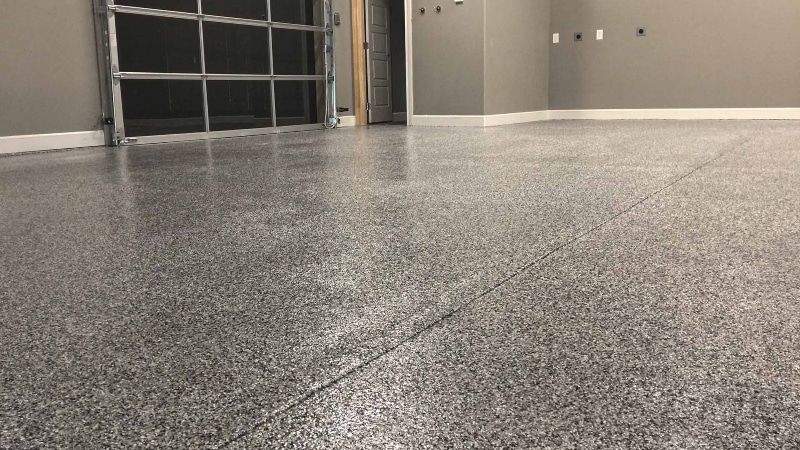
Labor and Installation Cost Considerations
When estimating epoxy coating costs, it’s not just about materials. Labor and installation expenses are key players too. Let’s dive into some important points:
- DIY vs Professional Installation: If you’re well-versed in epoxy coatings and trust your skills, going the DIY route can trim labor costs. However, hiring professionals will up the bill but ensure expert application.
- Time and Effort: Achieving that flawless finish demands meticulous prep and execution. Dedicate ample time and effort to nail the project.
- Quality of Work: Pros bring experience to the table, promising durable, top-notch results. A DIY job gone wrong might lead to costly re-dos.
- Warranty and Guarantees: Pros often offer warranties for post-installation peace of mind. This security might justify the extra expense for some.
By weighing these factors, you can make an informed choice between DIY coating and professional installation, steering clear of unforeseen costs. It’s all about striking the right balance for lasting, high-quality epoxy coatings.
Additional Costs to Consider
When shaping your budget for an epoxy coating project, keep an eye out for these hidden costs that can affect the final price:
- Transportation and Storage: Depending on your project’s scale, you might need to rent a truck for moving materials or invest in storage containers for leftovers.
- Equipment Rental: If you lack the necessary tools, consider renting equipment like grinders or mixers for surface prep and application.
- Repair Expenses: Any needed repairs before applying epoxy will increase your total spending, so include these costs in your estimates.
- Maintenance Needs: While epoxy is durable, it requires upkeep. Factor in future expenses for maintenance products and services.
- Unexpected Costs: Be prepared by setting aside a contingency fund for surprises like extra materials or labor.
By incorporating these elements into your budget, you can steer clear of financial shocks and ensure a seamless epoxy coating venture. Remember, investing in top-notch materials and professional installation can cut long-term expenses by reducing maintenance and repair outlays.
Epoxy coating costs encompass more than just the price tag of materials. The size of your area, type of coating, surface preparation, labor expenses, and customization options all influence the final cost. Conduct thorough research on suppliers and contractors, and factor in hidden costs like transportation and maintenance to get a precise estimate.
By considering these factors and making informed choices about DIY or professional installation, you can embark on your epoxy coating journey with confidence. With a beautifully coated garage floor, not only will you elevate the aesthetics of your space, but also add durability and value to your property. So go ahead, make that investment, and enjoy long-lasting results! This is just the beginning – explore different types of epoxy coatings available in the market and dive deeper into the world of customization options for a truly unique and personalized finish. Happy coating!
https://www.google.com/maps?cid=2589512530409833629


